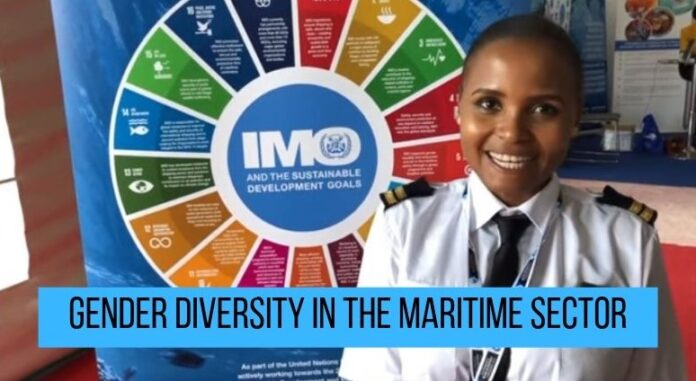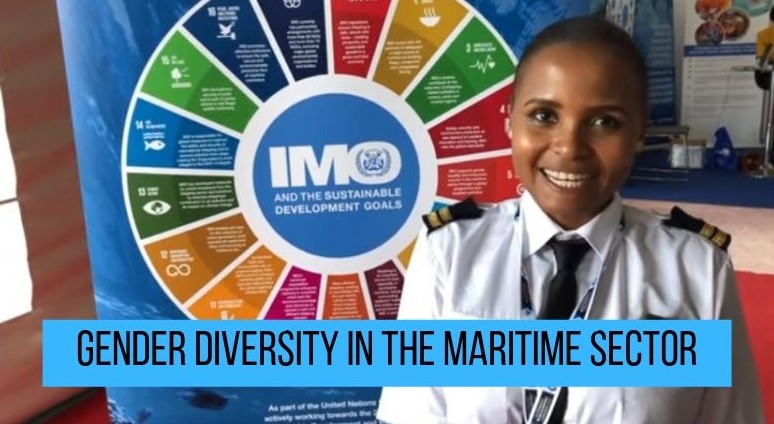
(www.MaritimeCyprus.com) A new film from the International Maritime Organization (IMO) shows how IMO's Women in Maritime programme is helping to support gender diversity in the maritime sector
The maritime world is changing - and for the better. With help from the International Maritime Organization (IMO), exciting and rewarding career opportunities are opening up for women and a new generation of strong and talented women are responding.
They are proving that, in today's world, the maritime industries are for everyone. It's not about your gender, it's about what you can do.
"We see more women involved in different departments within the maritime industry, we don't see them in the conventional roles anymore, where cooks and clerks, we see them in engineering, we see them going to sea, you see them in the radio rooms and communications, and intelligence, so it's definitely improved," says Lieutenant Alma Pinelo, an officer in the Belize Coast Guard. Lieutenant Pinelo is one of hundreds of women who have benefitted from IMO's Women in Maritime programme.
The programme, initiated in 1988, supports the United Nations Sustainable Development Goal 5: Achieve gender equality and empower all women and girls. The programme supports the participation of women in both shore-based and sea-going posts, under the slogan Training-Visibility-Recognition, through a wide range of gender-specific activities.
IMO Member States are encouraged to open the doors of their maritime institutes to enable women to train alongside men and acquire the high-level of competence that the maritime industry demands. Today, female graduates from IMO's training institutes, the World Maritime University (WMU) and the IMO International Maritime Law Institute (IMLI) hold positions of responsibility across the maritime world.
WMU counts more than 1,000 female graduates to date, while IMLI was the first UN body to include a requirement that 50% of its places be reserved for women.
"I applied to the World Maritime University, I got the fellowship and since graduating from the World Maritime University my career has really skyrocketed," says Deniece Aiken, Lawyer, General Counsel, Jamaica.
As well as training opportunities, IMO has facilitated the establishment of seven regional associations for women in the maritime sector across Africa, Asia, the Caribbean, Latin America, the Middle East and the Pacific Islands, some 152 countries and dependent territories and nearly 500 participants.
These associations support women by providing mentoring and networking opportunities, and many are working to promote careers in maritime to younger people.
"Now, there are students in high school that are finding out about the maritime industry now and that's all because of the Women in Maritime Association, Caribbean (WiMAC) and the IMO," says Rikki Lambey, Port State Control Officer, Belize.
Studies show that diversity matters. It's better for teamwork, better for leadership - and better for profits. Apart from the social imperative to promote diversity in the 21st century, supply and demand in the labour force dictate that the industry simply cannot afford to ignore women - a huge potential workforce.
"We need to be more sustainable; we cannot continue leaving aside 50% percent of the population," acknowledges Juan Carlos Croston, President, Caribbean Shipping Association.
There are still barriers to overcome and IMO's Women in Maritime programme is helping to address those challenges and work towards diversity and sustainability.
"In my opinion, there's never been a better time to close the gender gap, and I would encourage all to get on board with gender equality," says Helen Buni, Focal Point for IMO's Women in Maritime Programme.













